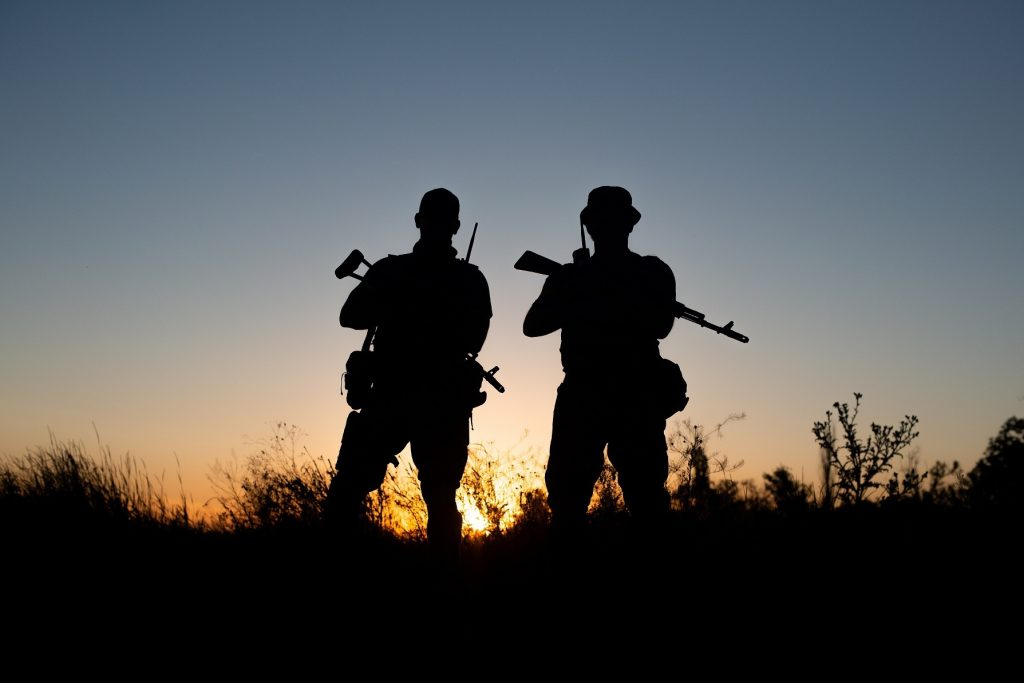Total chaos reigns in Russian army
Russian ex-soldier writes book
"We started a terrible war"
In his book, former Russian paratrooper Pavel Filatiev reports on the first days of the Ukraine war. He also settles accounts with Vladimir Putin.
A Russian paratrooper reports in a book about his experiences shortly before and during the invasion of Ukraine. It becomes clear in what a bad way Putin's army is. Pavel Filatiev reported back to the force in August last year and was promptly sent to Crimea.
"Ten days later I was given a uniform, but only summer clothes. There was no headgear in my size, so I went out and bought one," he writes in the book "ZOV", whose title echoes the letters Russian soldiers write on their tanks. The Russian platform "Meduza" has now translated some passages. Previously, parts of the book were published on the research platform "istories", which also showed pictures of the soldier.
Russia had begun an invasion of Ukraine on 24 February. Russian troops briefly advanced to just outside Kiev. Moscow calls it a military operation, while Western countries are supporting Ukraine with arms and aid deliveries. In the first weeks of the war, there were increasing reports of poor equipment and low morale among the Russian troops.
The rifle jammed at the firing range
When Filatiev refused a second-hand uniform for the winter because it did not fit, he bought himself a thick coat. Many comrades had no warm clothing, despite temperatures below freezing. Within a week, more than 30 soldiers had been transferred to the infectious diseases unit.
In February, he says, he noticed that something was developing: sick people were also ordered to train. "It turns out that my machine gun had a broken strap and was rusty. The first night at the firing range, the cartridge box jammed."
Marching orders meant marching
Then, on 20 February, his unit would
have received a marching order - they had to walk to a new location. Three days later, he says, there was a visit
from the division commander, who raised the pay to $69 (€67). "It was a clear sign that something
serious was about to happen."
On the night of 24 February, Filatiev had then woken up to artillery fire. He did not know whether advancing Ukrainian soldiers were being repelled or even if they were Nato troops. But it was clear to him that a war had begun. Later, he found out that there were orders to march to Kherson. His commander had no idea what was going on.
"All our training was on paper, our strategy was hopelessly out of date. We had the same tactics as our grandfathers," the Russian ex-soldier writes in his memoirs. "The first to attack were annihilated." The cold, he says, was felt down to the bones. When his unit reached the port of Kherson the next day, he says, the looting began. "I found a hat and took it."
Doctor ran out of syringes
Then, in April, Filatiev had fallen ill because of dirty eyes caused by artillery fire, he said. For five days he had to continue fighting, partly with one eye closed, until he was evacuated, he said. "The medic told me to tell the doctors he had no painkillers or injections." He said he had seen soldiers in the military hospital who stuttered, who had memory loss and others who drank heavily. He had to pay for his own medical care, he said
"For two months I tried to get
treatment from the army: I went to the prosecutor's office, I went to the
command, to the head of the hospital, and I wrote to the president." When
that did not bear fruit, he said, he requested his release on medical grounds. The leadership had sent the documents to the
prosecutor. He had been accused of
shirking. "This was an often-used
bluff to get people to go back to their unit." In the meantime he has left
the army.
His book is an account of the war and its leaders.
We had no moral right to attack
another country, especially the people closest to us. (...) Most of the troops
are dissatisfied with what is happening, the commanders and with Putin and his
policies and the Defence Minister, who does not care about the army,"
Filatiev writes. "We have started a
terrible war. A war in which cities are destroyed and which leads to the death
of children and women and the elderly. "
"Surely there will be a 'fair'
trial, (...), they will tell me that I have been bought, as an agent of the
West, but I can no longer watch all this quietly," the 33-year-old writes
at the end of his book. He is afraid to
publish the text and say what he thinks, he says. "You can no longer defend your rights,
you can only go to war to die for unclear goals."


Comments
Post a Comment